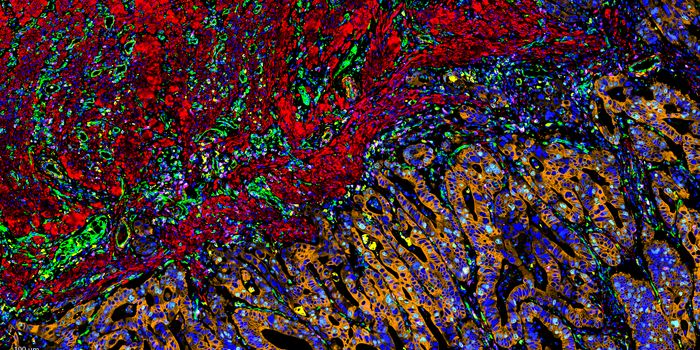Breast Milk: An Important Source of Protective Immune Cells
For the first time, scientists have identified innate lymphoid cells (ILCs) among the arsenal of protective cells transferred to newborn babies via breast milk. These cells have unique functions, providing protection for babies by boosting both the adaptive and the innate immune system.
In the past, scientists have studied macrophages as the most prevalent immune cell type in a mother’s breast milk. Now, a new study from scientists at the Medical College of Georgia at Augusta University shows that ILCs are present as well, and they are the cells responsible for directing the activity of macrophages.
While ILCs do not fight infections directly, they are capable of sending chemical messages via cytokines to macrophages and other immune cells in response to a pathogenic invasion. Macrophages are phagocytes, which means they engulf and digest bacteria and other dangerous, foreign objects.
Past studies have indicated ILCs to be important for inflammation, immunity, and tissue homeostasis. Interestingly, these cells play roles in both the adaptive and the innate immune systems, one specific and one non-specific. They have similar functions as T cells, but they do not express antigen receptors or undergo clonal selection and expansion.
"We think these cells help provide frontline immune protection for the baby," explained Dr. Jatinder Bhatia.
Bhatia and the other researchers identified all three of the known classes of ILCs in breast milk during the studies, with type 1 ILCs being the most prevalent. ILCs are transferred to baby via breastfeeding and survive in the gastrointestinal (GI) tract for several days. They also help the baby build the microbiome. ILC3s are especially important for forming the protective mucosal layer in the gut and responding to the microbiome as it eventually completes development.
While helping babies fight infections, breast milk ILCs also protect the mother from getting an infection from the baby during breastfeeding, completing a “feedback loop” as described by study scientists Dr. Jack Yu.
In addition to gaining the benefits of ILCs, breastfeeding is also helpful by lowering the risk of asthma, leukemia, obesity, ear infections, eczema, type 2 diabetes, and other health conditions for babies as they grow. Breastfeeding is also associated with a lower risk of type 2 diabetes, breast cancer, and ovarian cancer for mothers.
The present study was published in the journal JAMA Pediatrics.
Sources: Science, Womenshealth.gov, Medical College of Georgia at Augusta University









